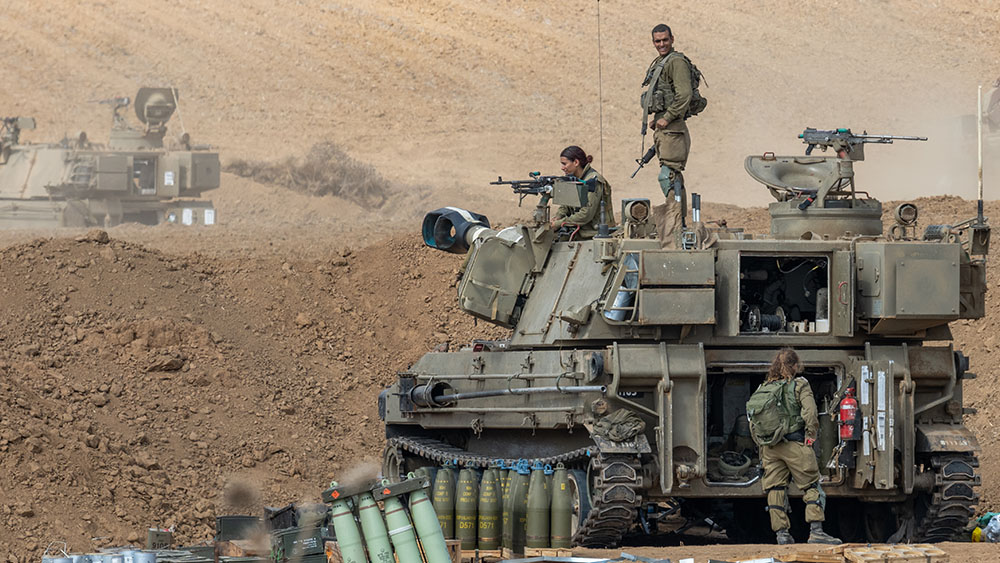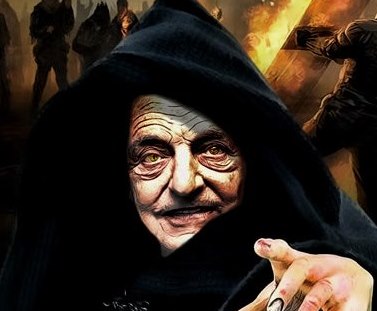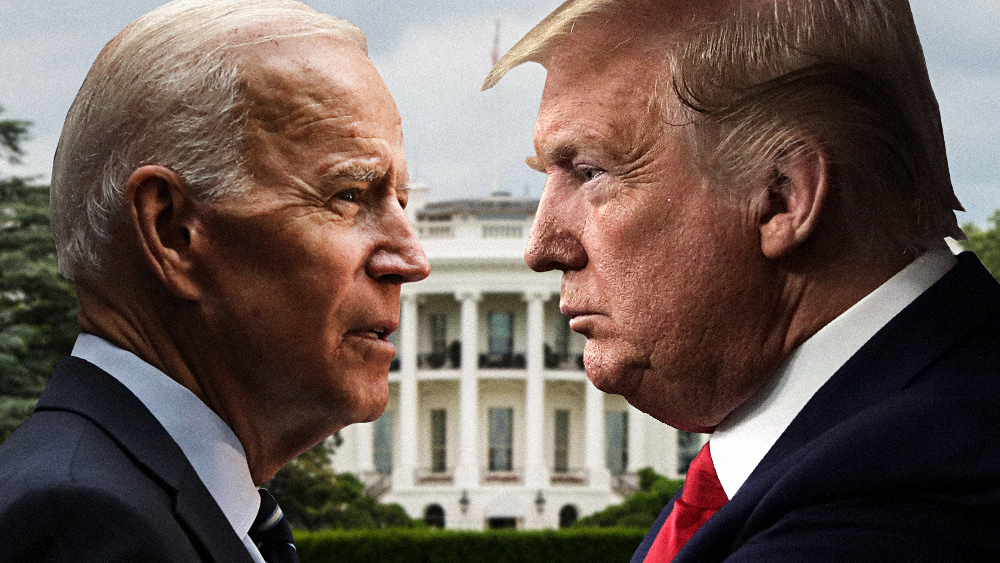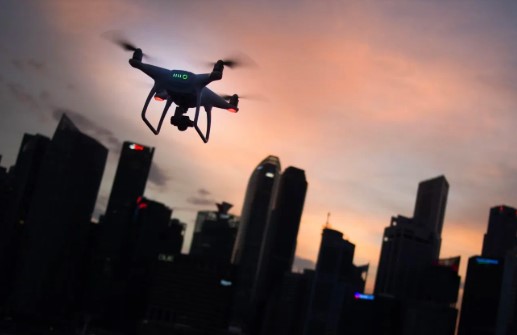Russia says they stopped a Ukrainian ASSASSINATION plot targeting a military officer and a blogger
01/02/2025 / By Lance D Johnson
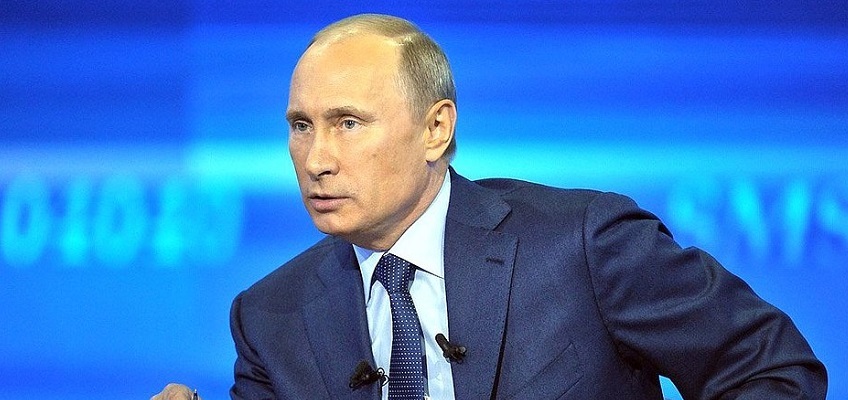
The recent allegations by Russia’s Federal Security Service (FSB) about a thwarted Ukrainian plot to assassinate a high-ranking Russian officer and a pro-Russian blogger highlight the escalating tensions and covert operations in the ongoing conflict between Russia and Ukraine. According to the FSB, a Russian citizen was allegedly recruited by Ukraine’s GUR military intelligence agency via Telegram to retrieve and plant a bomb concealed in a portable music speaker. The bomb, reportedly equivalent to 1.5 kg of TNT and packed with ball bearings, was intended to target unnamed individuals.
This incident follows the December 17 assassination of Russian Lieutenant General Kirillov, chief of Russia’s Nuclear, Biological, and Chemical Protection Troops, which Ukraine’s SBU intelligence service claimed responsibility for. Kyiv accused Kirillov of promoting the use of banned chemical weapons, a charge Moscow denies. Russia has vowed retaliation for Kirillov’s killing, framing it as an act of terrorism.
The atrocities and red lines crossed in the Russia-Ukraine conflict will not be easily forgiven
- The ongoing war between Russia and Ukraine began with Russia’s full-scale invasion in February 2022, but tensions have simmered since Russia’s annexation of Crimea in 2014.
- Ukraine views the war as an existential threat to its sovereignty, while Russia frames it as a “special military operation” to protect Russian-speaking populations and counter NATO expansion.
- Both sides have accused each other of targeted killings, which have become a hallmark of the conflict.
- The FSB did not disclose the identities of the officer or the blogger, but pro-Russian bloggers and military officials have frequently been targeted in the past.
- Ukraine has openly stated that it considers such operations legitimate to weaken Russian morale and punish individuals it deems responsible for war crimes.
- The atrocities committed and the red lines crossed in the Ukraine-Russia conflict will not be easily forgiven.
Recent assassinations in Moscow
Darya Dugina (2022): The daughter of Russian nationalist ideologue Alexander Dugin was killed in a car bombing near Moscow. Russia blamed Ukraine, while Kyiv denied involvement.
General Kirillov (2024): A Russian lieutenant general responsible for nuclear, biological, and chemical protection troops was assassinated in Moscow. Ukraine’s SBU intelligence service claimed responsibility, accusing him of promoting chemical weapons use.
- The Kirillov assassination involved a 29-year-old Uzbek citizen allegedly recruited by Ukrainian intelligence.
- Russia has vowed to retaliate for the assassinations, framing them as acts of terrorism. The FSB’s announcement aligns with Moscow’s narrative of Ukraine as a terrorist state backed by the West.
- Targeted killings raise ethical questions about the legitimacy of such operations in wartime, particularly when civilians or non-combatants are at risk.
- The international community remains divided, with some viewing these acts as justified resistance and others condemning them as terrorism.
Clashing narratives between Russia’s FSB and Ukrain’s GUR
- Russia’s FSB (Federal Security Service) is the primary domestic security agency and successor to the KGB. It has been actively involved in counterintelligence and counter terrorism operations during the war.
- Ukraine’s GUR (Main Intelligence Directorate) and SBU (Security Service of Ukraine) have been credited with high-profile operations, including sabotage and assassinations on Russian soil.
- Russia sees assassination attempts as terrorism to further justify its military actions against Ukraine.
- Ukraine, meanwhile, frames these operations as necessary to defend its sovereignty and hold Russian officials accountable for alleged war crimes.
- The involvement of Western intelligence agencies, though often unconfirmed, is a recurring theme in Russian accusations.
- The use of biological and chemical weapons allegations adds another layer of complexity, with both sides accusing the other of violating international norms.
The FSB’s claim of thwarting a Ukrainian assassination plot is part of a broader pattern of escalating covert warfare in the Russia-Ukraine conflict. As both sides continue to target high-profile individuals, the war is increasingly characterized by shadowy operations, propaganda battles, and ethical dilemmas. This incident highlights the deepening complexity of the conflict and its far-reaching implications for international security and norms.
Sources include:
Submit a correction >>
Tagged Under:
assassinations, conspiracy, corruption, counterintelligence, covert warfare, deception, deep state, escalations, Federal Security Service, narratives, national security, red lines, retribution, Russia, terrorism, Tyranny, Ukraine, War
This article may contain statements that reflect the opinion of the author
RECENT NEWS & ARTICLES
COPYRIGHT © 2017 NATIONAL SECURITY NEWS




